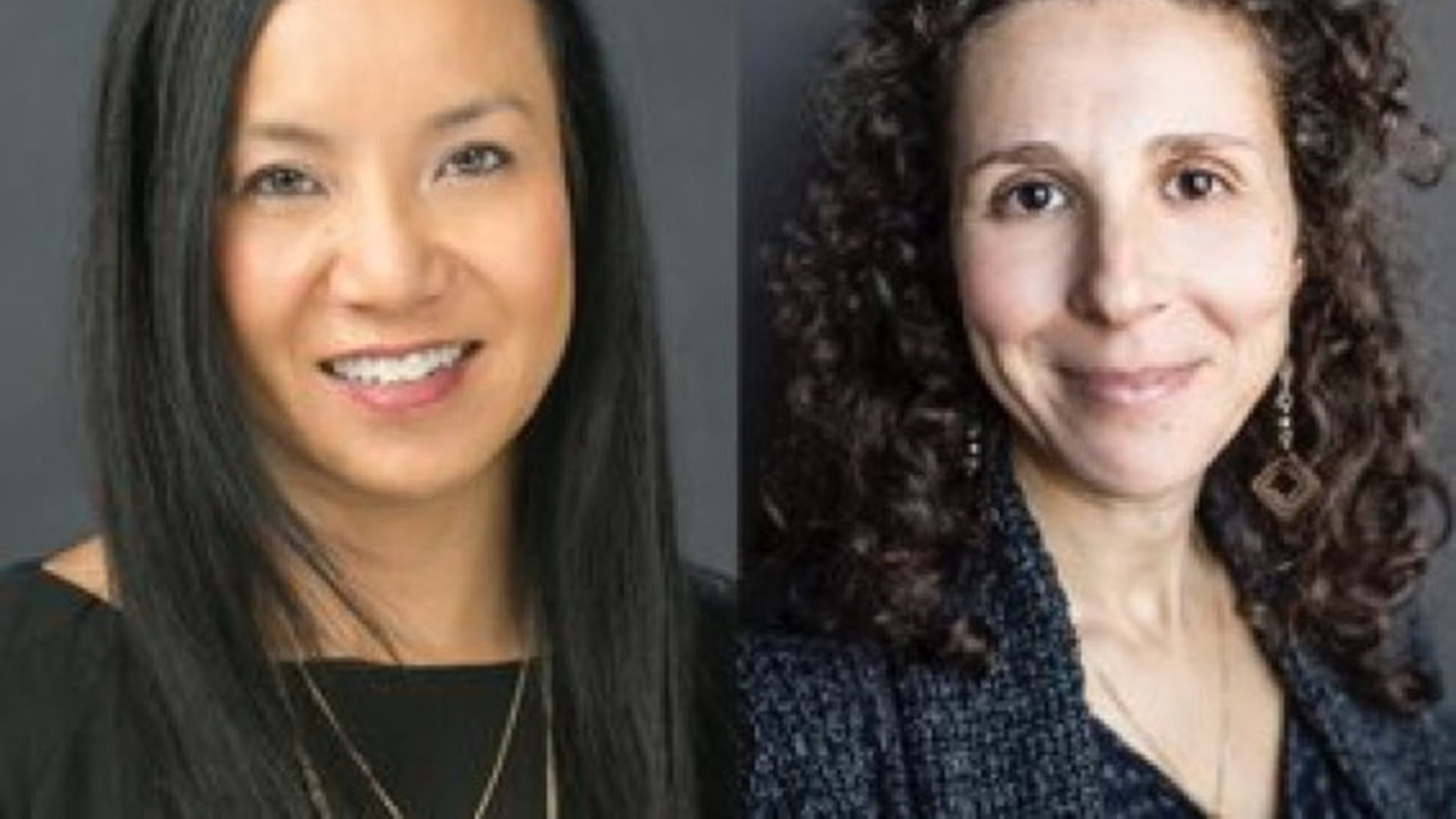This Life: 2 strangers come together to find the good in suffering

Just as 2016 was beginning, Robynne Boyd found herself facing the end of things. The husband she loved had left, and her mother was slowly dying of breast cancer.
A thousand miles away from her home in Decatur, Kimberly Libertini, a woman she didn’t even know existed, was experiencing a similar grief in Huntington, N.Y. The morning after she and her partner, Adam, returned from a trip to Vietnam, Kim awoke to find him passed away.
Hers was a sudden and shocking goodbye. Robynne’s, on the other hand, was like a slow drip. Both were in a state of shock.
Meanwhile, a mutual friend aware of each woman’s pain was feeling ill-equipped to help either of them.
Then he had an idea. He introduced them via text message.
“If you two could talk, I think you both have something to offer each other,” he wrote.
Not only had Kim experienced the loss of her mother to illness, she’d also been divorced.
She’d walked the path that Robynne was about to go down.
Robynne, a 41-year-old mother of two sons, reached out first.
“There was no need to clean up, or hide my experience and pretend that everything was OK,” she recalled the other day. “I think because we were both suffering deep and acute grief at the same time, it felt safe to share our thoughts and feelings and be a sounding board for the other person.”
By the end of the year, Robynne’s mother had lost her battle with cancer, but she and Kim had forged a “surprisingly beautiful friendship and an unexpectedly cathartic way to go through the many emotions that come with grief.”
It was the opposite of any friendship Robynne had ever had. Instead of talking about what they each did for a living the way we often do when we first meet, the women shared their loss and the pain that comes with that.
Over the next two years, they talked almost incessantly about how to find normal when nothing about their lives felt normal anymore. They shared music and quotes, mostly via text but sometimes via phone.
When the pain became so deep that Robynne felt like she couldn’t breathe, she’d text Kim.

“Deep breaths,” Kim would text her. “You’ve got this, lady.”
Kim, the high school science teacher, became a lifeboat of support for Robynne, the environmental journalist, and vice versa.
Somewhere along the way, the focus of their talks switched from themselves to how they might help others.
In November 2016, the friends decided to create an app that would mimic the same support system they found in each other.
No matter the relationship, they wanted people suffering loss to be able to find a place that’s safe, that’s private and that’s available 24 hours a day.
There are many reasons they chose an app. Kim had already tried both grief and bereavement support and one-to-one counseling. She was also trying to raise two boys and pick up the pieces of her life.
“There was a disconnect,” she said.
RELATED: Choose words wisely when offering comfort
But with Robynne she not only shared grief, they had other things in common, too. Chief among them was they were both trying to raise two boys while navigating considerable loss.
In January 2018, almost a year after the app conception, they launched Goodgrief, the first Social Network for Loss.

I know good grief might sound like a oxymoron but, trust me, there is healing in those words if we look for it. Adversity bruises and crushes us, but it almost always teaches us, and if we allow it, changes us for the better.
Robynne said it made her more compassionate.
The app costs just $4.99 a month after a free-trial period, and works by putting you in touch with others who’ve lost their spouse, parent, sibling, child, relative or friend due to a variety of causes.
All you have to do is create a profile and voila — filters narrow your connections by age, gender, religion, time frame, and type and cause of loss, so you can connect with others like you via one-on-one in-app texting and photo sharing.
Your private information is never seen publicly, and chats are private and secure.
“The benefit of the model we created is these individuals don’t know you, so they don’t have any judgment attached, just understanding and validation of your pain,” Kim said.

To date, about 900 people have downloaded the app.
If you’ve ever experienced loss of any kind, getting to the other side and seeing the good in it can be the hardest thing you’ve ever done.
Having someone to talk to, who understands, who doesn’t feel the need to have a ready solution means the world.
Having someone always there to reach out to can mean the difference between traveling through grief or getting stuck there.
Robynne Boyd and Kim Libertini know this perhaps better than anyone.
Find Gracie on Facebook (www.facebook.com/graciestaplesajc/) and Twitter (@GStaples_AJC) or email her at gstaples@ajc.com.


